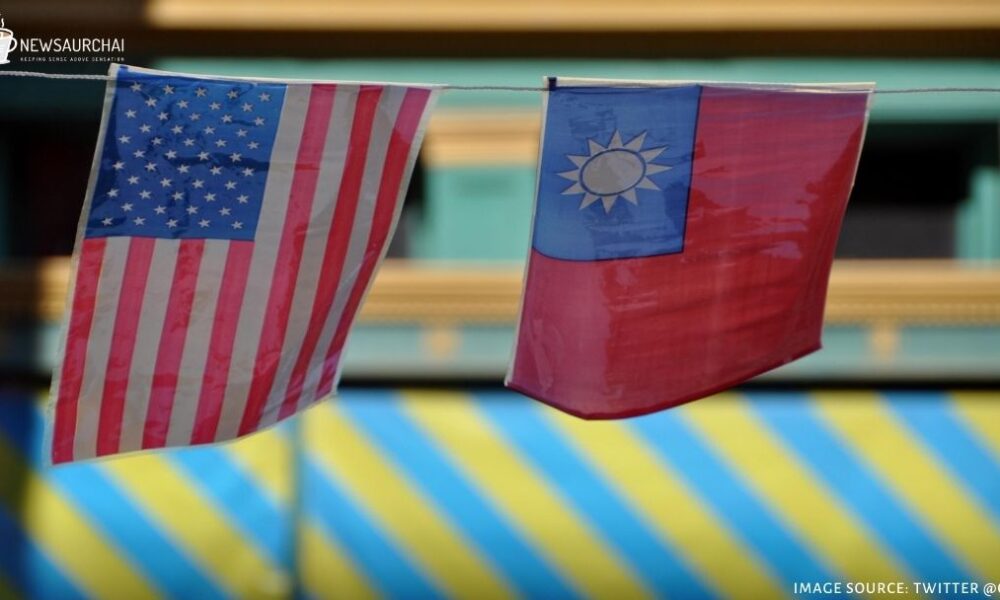China on Thursday threatened to make a “legitimate and necessary” retaliation over the sales of arms from the US to Taiwan as Beijing becomes increasingly vociferous over its claims to the self-ruled island.
China’s foreign ministry accused the United States of violating agreements signed by Beijing and Washington in the 1970s establishing diplomatic relations between the two governments.
In a press conference, China’s foreign ministry spokesman Zhao Lijian said the deal is “sending a very wrong signal to separatist forces advocating for Taiwan independence, and seriously damages China-US relations.”
Details about US-Taiwan Weapon Deal:
The US Department of State has approved the potential arms sales to Taiwan, which comprise of three weapon systems, including sensors, missiles and artillery that could have a total worth of 1.8 billion dollars (£1.4bn), a move which will likely escalate the tensions with China.
The Pentagon approved the deal on Wednesday, amid rising tension over the self-ruled island that is seen as a renegade province by China. The notice says that the State Department has approved the sales to the Taipei Economic and Cultural Representative Office in the United States of 135 Standoff Land Attack Missile Expanded Response (SLAM-ER) missiles and related equipment estimated for more than 1 billion dollars, 11 High Mobility Artillery Rocket Systems (HIMARS) M142 Launchers and related equipment at an estimated cost of 436.1 million dollars and six MS-110 Recce Pods and related equipment for an estimated 367.2 million dollars.
The formal notification gives Congress 30 days to object to any sales, but there is broad bipartisan support for the defence of Taiwan.
Last week, US national security adviser Robert O’Brien said that while he did not believe China was ready to invade Taiwan, the island needed to “fortify itself” for the future.
Defence Minister Yen De-fa welcomed the development, saying that while Taiwan did not want to get involved in an arms race with China, it needed a credible military.
Yen further said that the sales were to help Taiwan improve its defensive capabilities to deal with the “enemy threat and new situation.” He also added that Taiwan would continue to consolidate its security partnership with the United States.
Though the Chinese embassy did not respond with a comment, China’s Foreign Ministry says the arms deal is likely to have damaged its sovereignty and security interests with the US and that it would respond as necessary.
It urged Washington to withdraw the relevant arms sales and warned that China would “make a legitimate and necessary response according to how the situation develops.” The latest deal is likely to draw more condemnation.
The US administration has stepped up pressure on Beijing in the run-up to November 3rd US presidential election, in which President Donald Trump has made a tough stance against China a central theme of his campaign for his second term.
China-Taiwan Tension:
China and Taiwan were divided during a civil war in the 1940s, but Beijing insists that the island will be reclaimed at some point, by force, if necessary.
Tensions between the People’s Republic of China and Taiwan have increased in the recent years, with the election of Tsai Ing-wen as Taiwan’s president, who is viewed as an opponent of Beijing. She was re-elected in January,2020 and had been closely working with the countries defence system to keep a watch on Chinese moves. Meanwhile, China has not ruled out the use of power to take over the island.
The island has also been seeking help from the current administration, which, unlike its predecessors, seems willing to challenge the feeble balance Washington has maintained for decades with China and Taiwan. Washington sees Taiwan as an important democratic outpost and is required by law to provide the island with the means to defend itself.
Washington has been eager to see Taiwan prop its defence capabilities in the face of increasingly bold moves from Beijing, which has been putting pressure on the island ever since President Tsai Ing-wen was first elected in 2016.
In recent months, the US has been intensifying its outreach to Taiwan. The highest-ranking US politician visit to Taiwan in August, to meet the island’s president, Tsai Ing-wen, was one such notable move in decades.
Beijing strongly criticised the visit, warning the US “not to send any wrong signals to ‘Taiwan independence’ elements to avoid severe harm to China-US relations.”
Recently Taiwan’s defence ministry told the parliament that Chinese fighter jets and bombers had entered the island’s air defence zone with increasing frequency in recent months, while propaganda films have shown simulated attacks on Taiwan-like territories.
China has also stepped up military drills that it presents domestically as rehearsals for a future invasion of Taiwan, though experts say a conflict is not imminent.
While the US does sell Taiwan arms, and has an implicit security guarantee, it does not have a formal defence treaty with Taiwan as it does with Japan, South Korea, and the Philippines.
Meanwhile, China on Tuesday warned India to remain committed to the one-China principle and approach Taiwan-related issues prudently and properly, following a media report that New Delhi could open trade talks with Taiwan, which the mainland considers a breakaway region.
